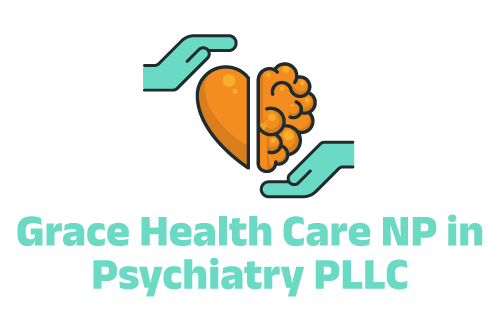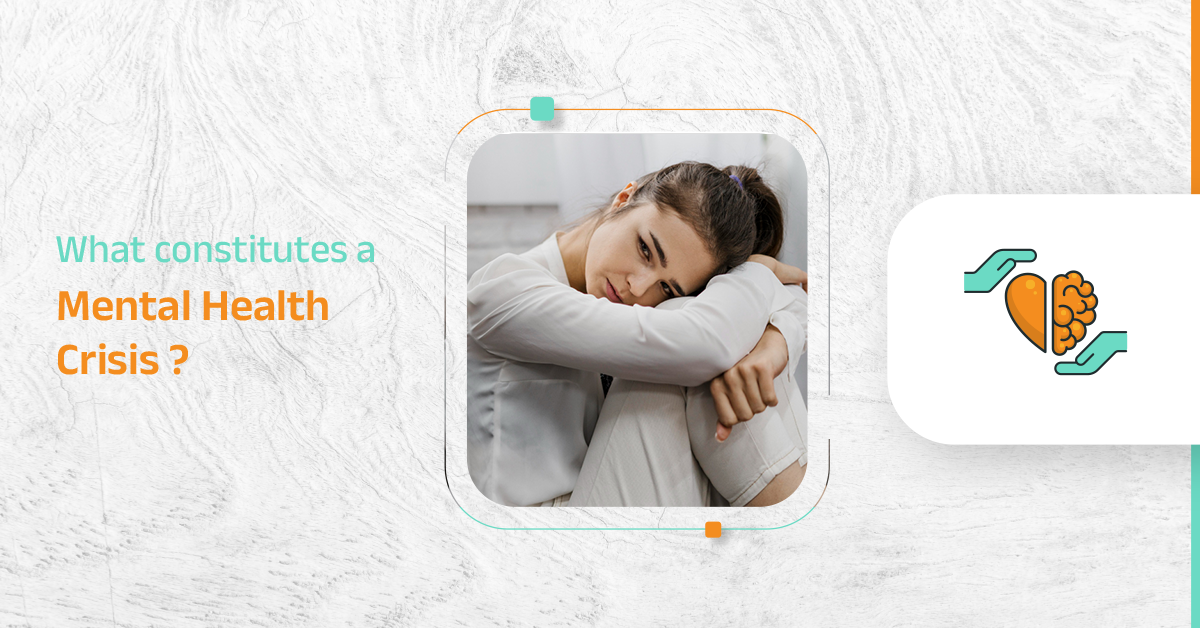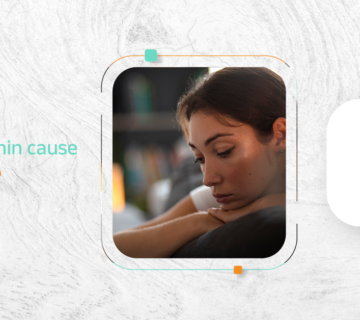According to CDC every year, 726,000 people die by suicide. Many more attempt it.
A mental health crisis occurs when a person’s emotions or mind are in a critical state. It requires immediate help to prevent harm to themselves or others.
A mental health crisis is worse than routine stress or daily challenges. It is a sudden, severe failure to cope, function, or stay safe.
Knowing what constitutes a mental health crisis and its signs can save lives. It allows for timely help and support.
Are you suffering from a mental health disorder? Do consider Grace Healthcare for your mental health problem.
What Is a Mental Health Crisis?
Let’s define mental health crisis.
Stress, conflict, and trauma can trigger a mental crisis. These crises endanger both the person and others. They also make self-care hard and disrupt daily life. Common triggers include home tensions, relationship issues, PTSD, and violence. Similarly, work and school pressures can also spark a crisis. This makes community living difficult.
Recognizing these catalysts is crucial for prevention and intervention. Also, larger trends are contributing to the rise in suicide, including:
- More people feel isolated and disconnected, worsening the loneliness epidemic.
- One in five adults struggles to access healthcare, limiting vital care.
- There’s a growing dependence on technology and social media.
- Society’s pressure to be perfect and succeed has increased.
- The use of opioids for pain management has also risen.
Mental health crises can happen suddenly, even before a diagnosis. Those with a diagnosis are at greater risk. This highlights the need for early action. We must build strong support systems to protect vulnerable people before and after diagnosis.
Signs of a Mental Health Crisis
Mental health crises, like fingerprints, are unique to each person. Sudden mood changes and withdrawal from social activities are warning signs. Similarly, neglecting oneself and having thoughts of death require urgent attention.
Reckless behavior, giving away valuables, and substance abuse also indicate serious problems. Additionally, changes in sleep and appetite can signal distress.
It’s vital to be watchful and caring. Each crisis needs a specific response tailored to the individual. Early recognition of these signs can significantly aid those with mental health issues.
- Inability to complete daily tasks: Once easy, daily tasks are now hard. Activities like dressing, brushing teeth, bathing, and eating have become challenging. Simple routines now feel complicated, breaking the flow of daily life. What used to be automatic now demands effort and determination.
- Thoughts of self-harm: This means any expression of suicidal thoughts or a desire to self-harm. Hinting at death or discussing it. These verbal and non-verbal cues signal serious emotional distress and potential danger. Recognizing such warning signs is crucial for timely intervention and support.
- Withdrawal: Disengaging from friends, family, and activities they once enjoyed.
- Excessive worry, fear, or panic: Uncharacteristically strong anxiety
- Impulsive or reckless actions: Impulsive, aggressive, or out-of-character behavior.
- Shift in everyday patterns: Experiencing dramatic shifts in mood, sleeping or eating patterns
Causes of the Mental Health Crisis
Many factors cause mental health crises, affecting people from all backgrounds. Some key contributors include:
- Stressful Life Events: Traumatic losses or money and relationship issues can trigger mental health crises.
- Genetic Factor: Certain genes and a family history of mental illness increase crisis risk.
- Biological Factors: Imbalances in brain chemistry or hormones can worsen mental health issues. Some medical conditions can also have this effect.
- Environmental Stressors: High-pressure environments, social isolation, discrimination, and violence harm mental health.
- Substance Abuse: Drug misuse or addiction worsens mental health or triggers crises.
- Lack of Access to Care: Limited access to mental health resources delays recovery and worsens crises. This includes therapy, medication, and support.
Types of Crisis Psychology
Mental health crises vary widely, each with distinct challenges and symptoms. Common types include:
-
Psychotic Episodes
Involve loss of reality, hallucinations, delusions, or disorganized thinking.
-
Acute Anxiety Attacks
Panic hits quickly, causing various symptoms. Hearts race, palms sweat, and bodies tremble. These episodes overwhelm victims with fear. They are left shaken and breathless.
-
Major Depressive Episodes
Depression persists, bringing sadness and hopelessness. Interests wane. Sleep and appetite change. Suicidal thoughts may creep in. This gloom disrupts life, alters routines, and threatens existence.
-
Bipolar Mood Swings
Extreme highs (mania) and lows (depression). They cause impulsive behavior and disrupt daily life.
-
Suicidal Crises
Suicidal thoughts and feelings of worthlessness invade the mind. They trigger dark impulses. Thoughts suggest loved ones would be better off without them. This heavy despair distorts perception. It blocks hope and twists reality.
-
Substance-Induced Crises
They result from drug or alcohol use. This leads to poor judgment and worsened mental health.
What to Do in a Mental Health Crisis
- Stay calm: Take deep breaths. Remain calm. Ease tension with composure.
- Assess safety: Evaluate the person’s risk. If they threaten themselves or others, call emergency services immediately.
- Listen and offer support: Encourage the person to discuss their feelings. Be patient and nonjudgmental.
- Provide reassurance: Let them know they are not alone and that help is available.
- Seek professional help: In a mental health crisis? Call a hotline, go to the ER, or contact your doctor. Quick action and professional help are crucial.
- Stay with them if possible: Stay by their side. Offer solace and support until they reach safety or help comes.
In Conclusion
What constitutes a mental health crisis?
A mental health crisis can have many causes and warning signs. Recognizing the signs early and seeking help is crucial for recovery and safety. Contact a healthcare provider like Grace Healthcare for support if you’re struggling.
FAQs
-
What’s the difference between a mental health crisis and regular stress?
A mental health crisis is worse than routine stress. It involves a breakdown in functioning, an inability to cope, or threats to safety. Unlike typical stress, which is manageable, a crisis is not.
-
How can I support a loved one after a mental health crisis?
Offer emotional support. Encourage them to stick with treatment. Keep communication open, and be patient as they recover.
-
Are there long-term treatments for preventing future crises?
Yes, long-term treatments can help. Therapy, medication, and lifestyle changes work. So do strong support systems. They can prevent future mental health crises.







No comment